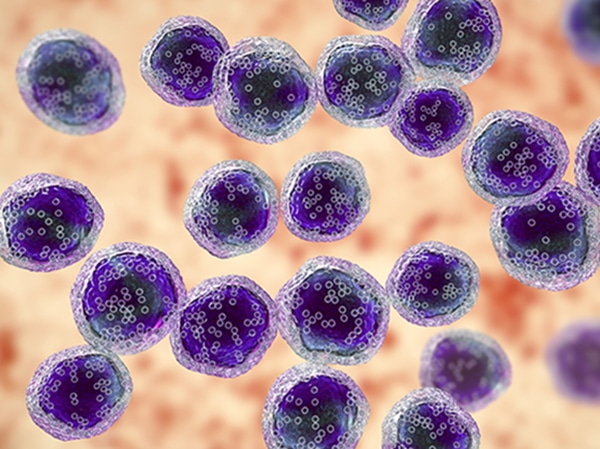A Targeted Therapy for Childhood Cancer
The FDA approved a monoclonal antibody combined with chemotherapy TO TREAT certain childhood blood cancers that express the protein CD20.
The U.S. Food and Drug Administration (FDA) has approved rituximab (Rituxan), in combination with chemotherapy, for use in certain pediatric patients with previously untreated advanced-stage diffuse large B-cell lymphoma (DLBCL), Burkitt lymphoma, Burkitt-like lymphoma, or mature B-cell acute leukemia that expresses the CD20 receptor.
CD20 is a receptor expressed on the surface of a type of immune cell called B cells. Certain lymphomas and leukemias are caused by the uncontrolled growth of B cells. Rituximab is a monoclonal antibody that binds to CD20 on healthy and malignant B cells and targets them for destruction by the immune system. For this reason, patients receiving rituximab treatment must have a cancer that expresses CD20.

This approval is based on data from Inter-B-NHL Ritux 2010, a global multicenter, open-label, randomized clinical trial in which 328 patients were randomly assigned to be treated with chemotherapy or chemotherapy plus rituximab.
At a median of 3.1 years post-treatment, patients treated with chemotherapy plus rituximab were 68 percent less likely to have a disease recurrence. Although the researchers did not perform a formal statistical analysis on the survival data, they noted that 20 deaths occurred in the chemotherapy arm, compared with eight deaths in the chemotherapy plus rituximab arm.
The National Cancer Institute estimates that 10,500 new cases of childhood cancer were diagnosed in 2021, resulting in approximately 1,200 deaths. Blood cancers, such as leukemias and lymphomas, are among the most common cancer types diagnosed in children under 14 years of age.
The FDA approval was rendered on December 2, 2021.
